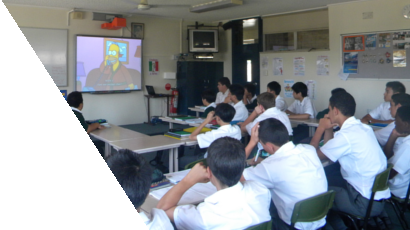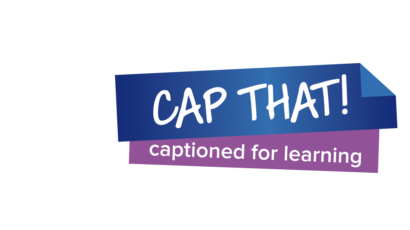Students with sensory impairment need captioning [LINK] and audio description [LINK] when lessons include multimedia resources. Media Access Australia’s has a comprehensive Education strategy [LINK] to assist and support teachers and students.
Top of page




 Education
Education